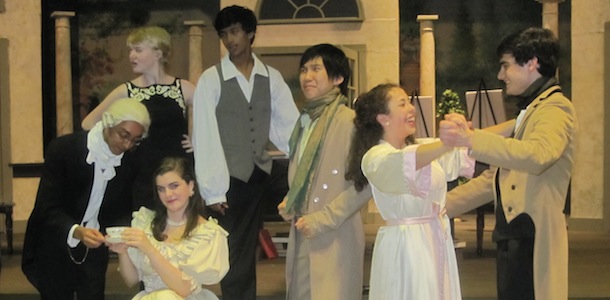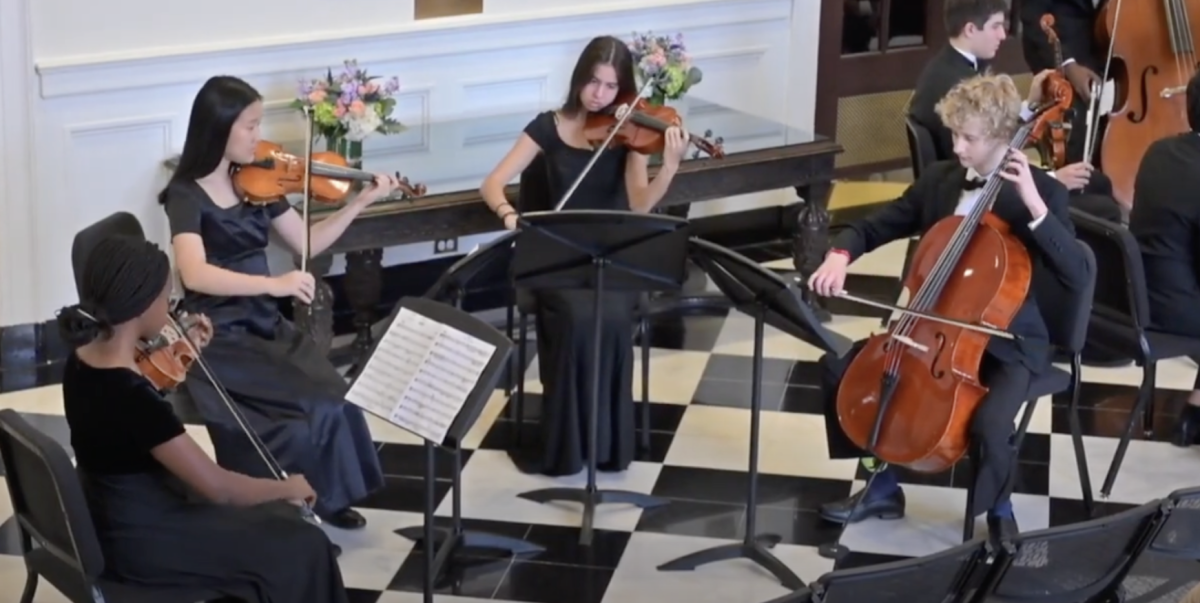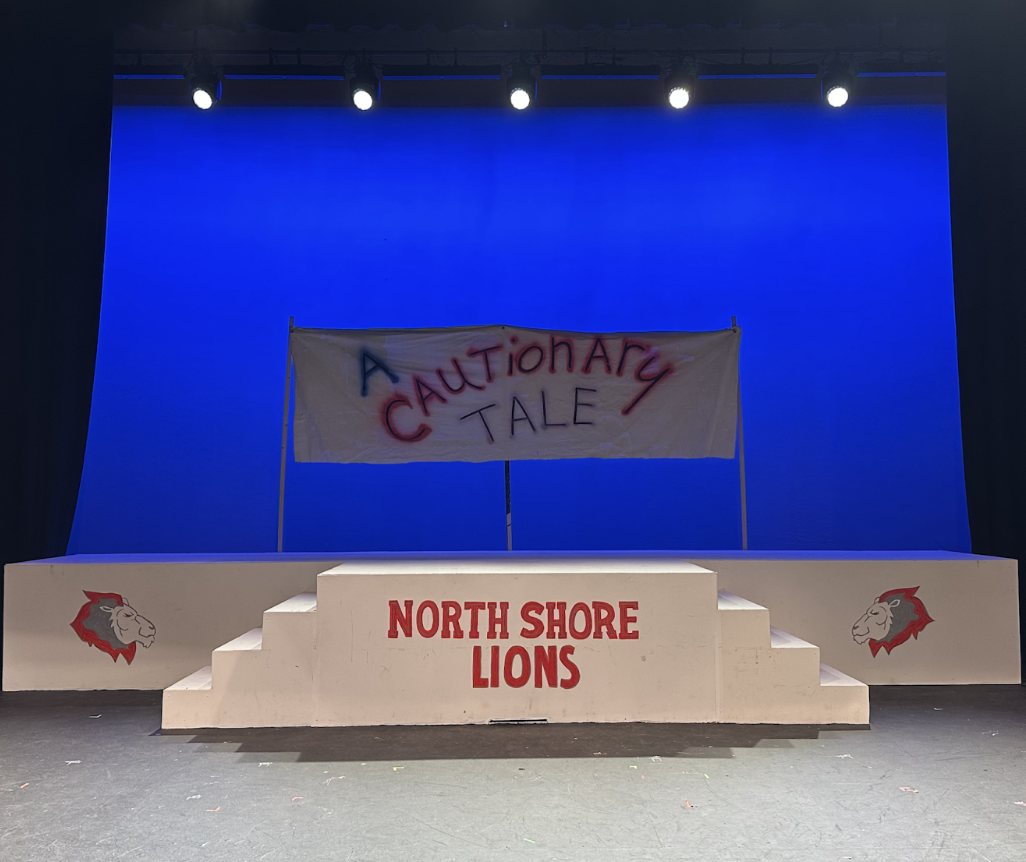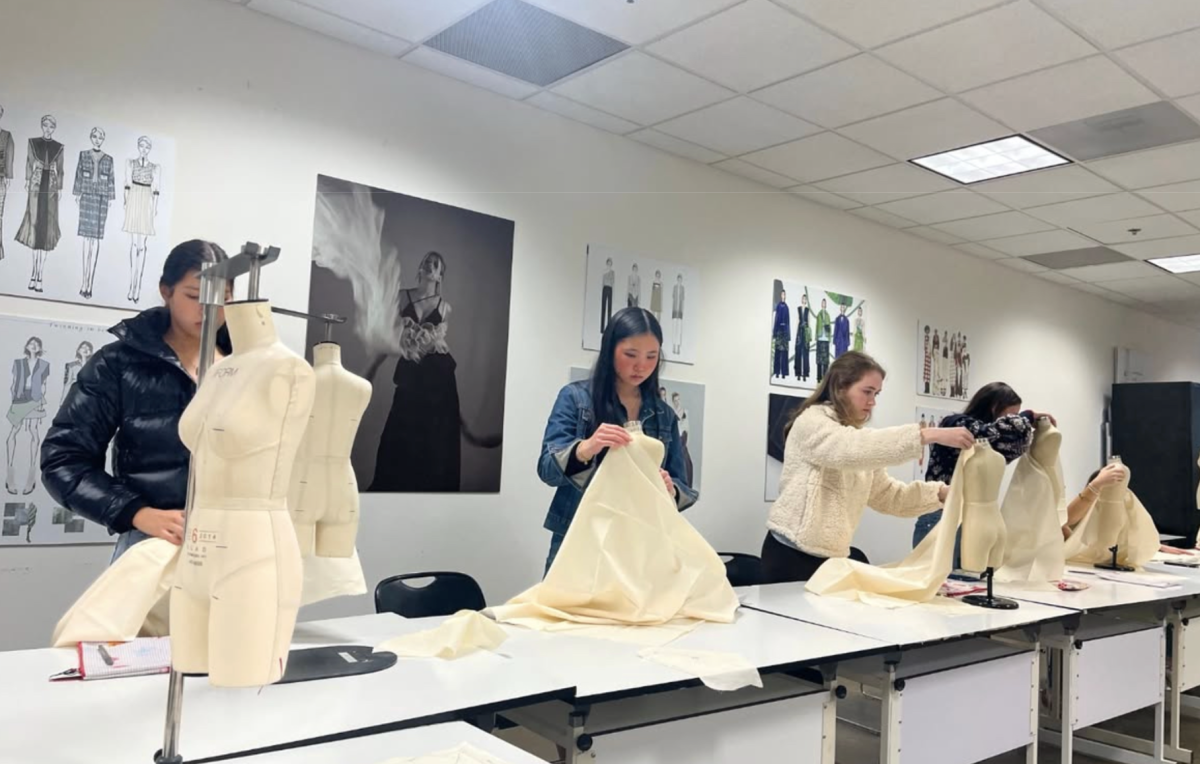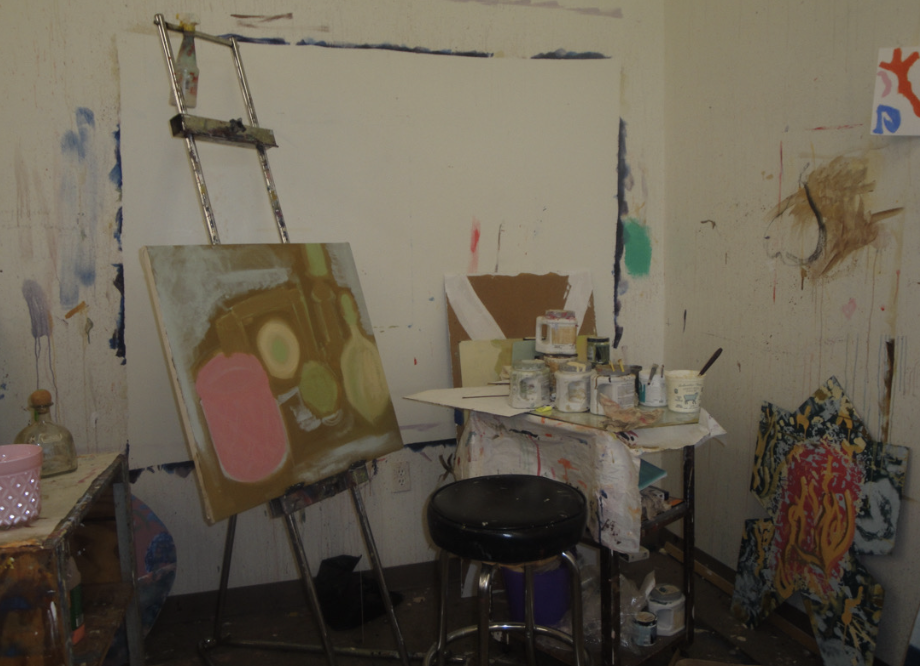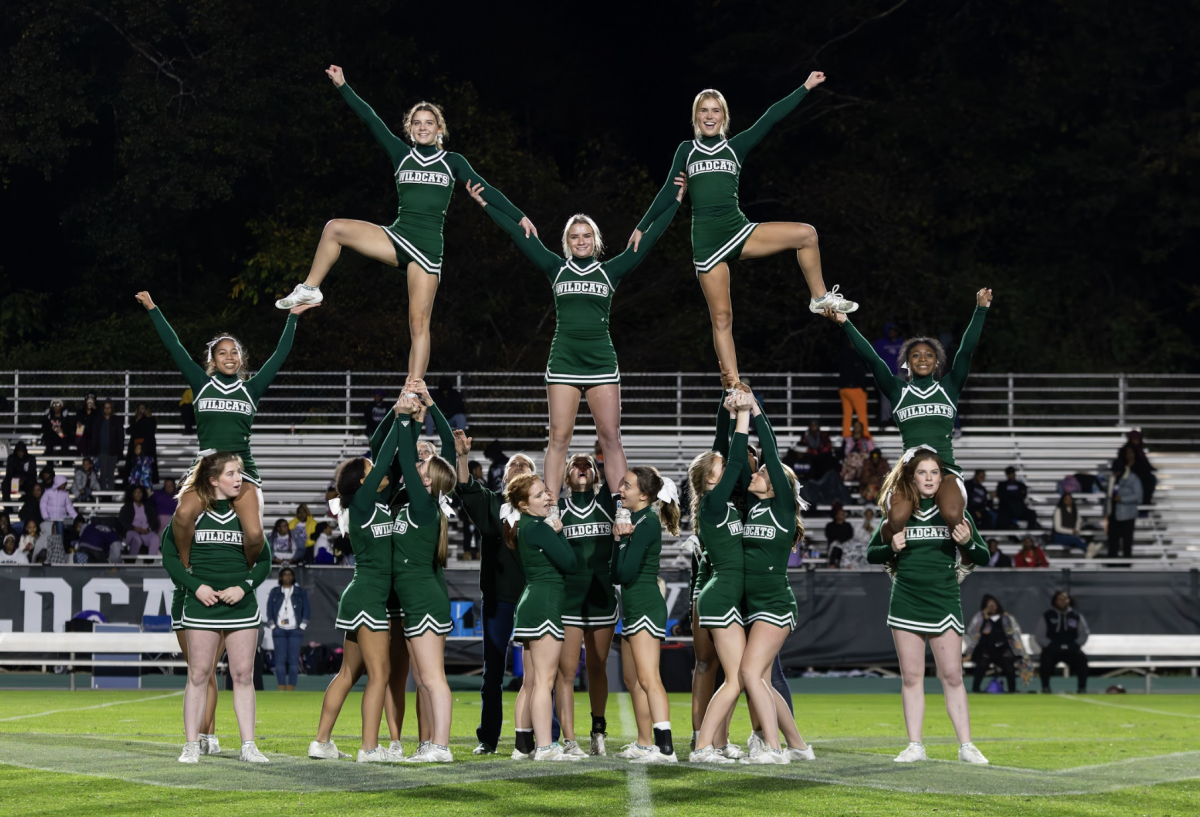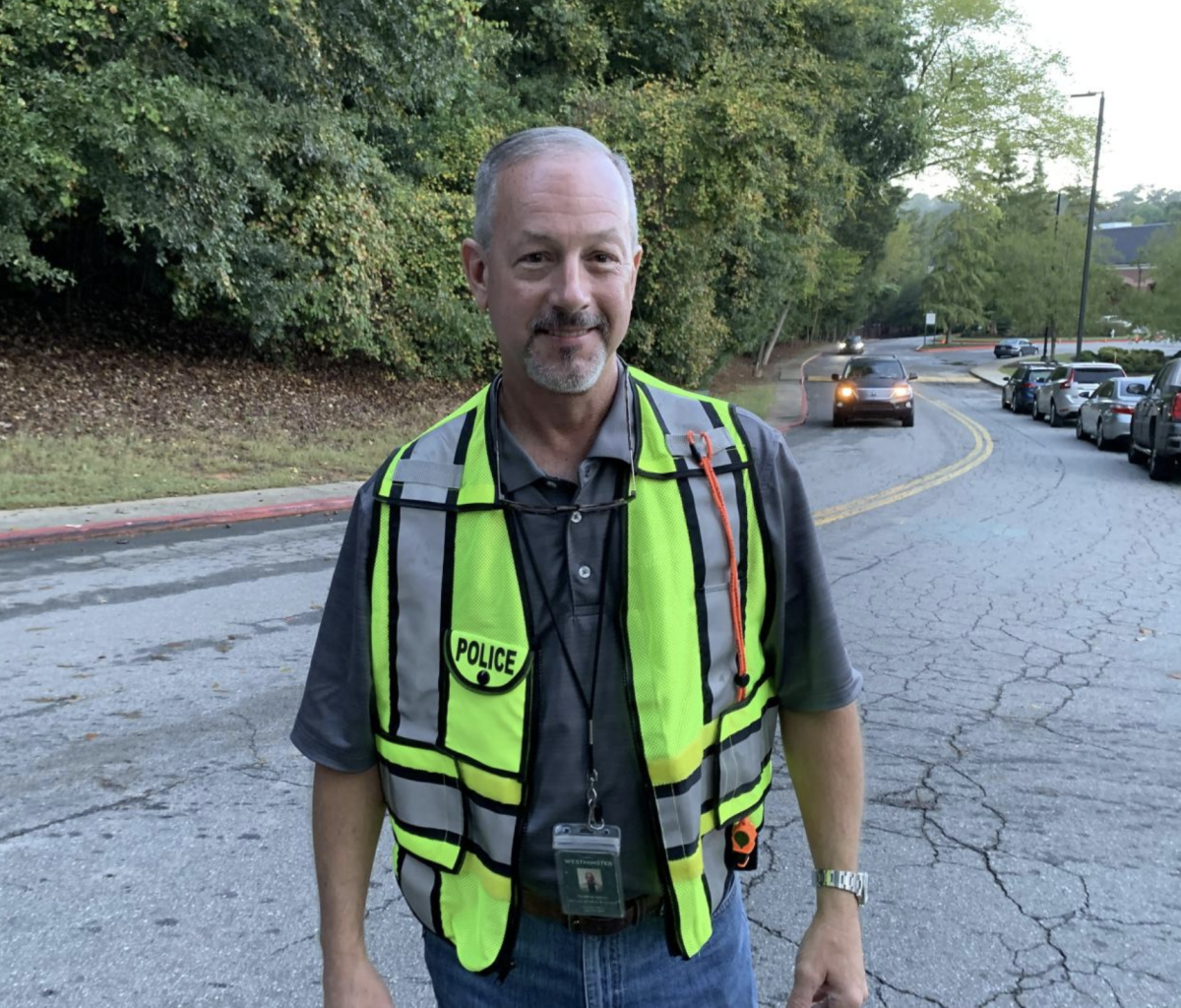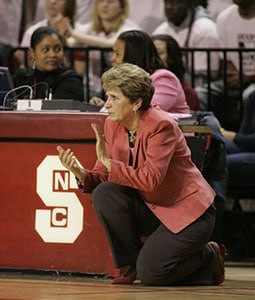Two figures sit at opposite ends of the long wooden table. The set–a table with books scattered on it, a podium, a stand with drinks on it–will never change, but the time period will. The two characters on stage are a student, Thomasina, and her tutor, Septimus. Thomasina immediately begins to spout out near-perfect descriptions of iterated algorithms, chaos theory, entropy, and the heat-death of the universe. Only in a handful of places would one see a character such as this, and this year’s spring play just happens to be one of them.
The play Arcadia, written by Tom Stoppard in 1993, opened at Westminster on Thrusday, April 26, and ran through Saturday. Overall, it presented a variety of plot lines and stories, intertwined in a sophisticated web.
“Arcadia is a very complicated show,” said sophomore understudy Caroline Maguire. “It basically revolves around two time periods: Victorian England and modern day. In the past, there is a romance between Septimus Hodge and Thomasina, the girl he tutors, who is a mathematical prodigy. In the present, many characters have complicated relationships, and Hannah and Bernard study the past characters in the other half of the show. The play is somewhere between a tragedy and a comedy. It has some witty parts, but it’s also very serious a lot of the time.”
Though the play contains a vast quantity of potentially confusing material, many are of the opinion that this is purposeful.
“One of the themes of this play is chaos versus order,” said Kate Guyton-Morgens, the director of Arcadia. “There is this chaos theory about how if you were to stop atoms in their places, you actually could find order within the chaos. So, in Arcadia, if you were to see the dining table at the end of the night, the first time it would be this mass of different props, but if you were to see it every night, you would see the exact same chaos as the night before—you would see the exact same lantern and the exact same book, all in the exact same place.”
This idea of chaos versus order, though reiterated often throughout the play, is not the only theme within. In fact, there are countless hidden meanings in Stoppard’s words, one of which the director outlined as especially important.
“My favorite theme is, as Hannah says in the play, ‘It’s the wanting to know that makes us matter.’ So while all these characters are in search of something bigger, I think Hannah’s line summarizes a really good theme for the play and for her life, and a good theme for all of our lives. It’s that sort of idea that it really doesn’t matter whether or not there’s an afterlife—she believes in God, she believes in spirituality, she believes in the soul—but for now, while we’re living our lives, we’re still searching for the answers.”
With all of these differing themes and ideas forming a formidable undertow of meaning in Arcadia, the acting quality became the focus of the production before opening night. Weeks before the curtain went up, the cast was preparing for the rigorous task of bringing Stoppard’s vision to life.
“The first week, I assigned everybody a research project,” said Guyton-Morgens, “because a play like this has so many good topics that if I were an actor in the play, I would have a hard time researching everything about mathematics and dueling and Byron and physics. So somebody was assigned iterated algorithms, somebody was assigned the second law of thermodynamics, and so on. Then, they would come and present their research to the cast so we were all on the same page with the subject matter.”
After this initial knowledge-gathering process, the cast got down to preparation for the performance of the show.
“We do a lot in the first week and onward with textual work and thinking about what’s going on in the play so that we all know who we are and what the relationships between us are,” said Guyton-Morgens. “Then, we work on the scenes and we start blocking it and we start to figure out physically who we are. So part two is getting on our feet and trying to figure out what our objectives are, what our habits are, and even what our clothes might be like. The next step is really solidifying what you want as a character in the play. I do believe that characters that are in front of us can be human, that they can have motivation and feel like people trying to tell a story.”
After the major acting work was done, all that was left was the final preparation and formation of the show into a finished product.
“The last step,” said Guyton-Morgens, “is to add all the extra elements like costumes, lights, props, and all the other things necessary to really polish it.”
After this tireless practice and work, Arcadia finally debuted on April 26, eliciting a range of student responses, both within the cast and outside of it.
“I really enjoyed Arcadia a lot,” said senior Chas Crawford. “What I liked most was that a lot of characters experienced love in very odd ways, like some see it as unreachable and others see it like they shouldn’t have it. It was fun to see the characters and how they reacted to love.”
“I think it’s a really novel idea to have two separate timelines, and have the timelines meet up at the end,” said junior Will Oglesby. “I think it’s very well done and ties the show together well as a kind of meeting of all the themes and characters.”
From the many different attributes favored by both the audience and the cast, to the intertwining themes within, Arcadia seems to breed complexity at every turn.
“I feel like all the characters,” said Guyton-Morgens, “with their research or with their schoolwork, or with their dueling, are all trying to create order in their universe and aspiring to the wonder of the divine. In this, I think, all the chaos kind of aligns, and order comes from chaos.
